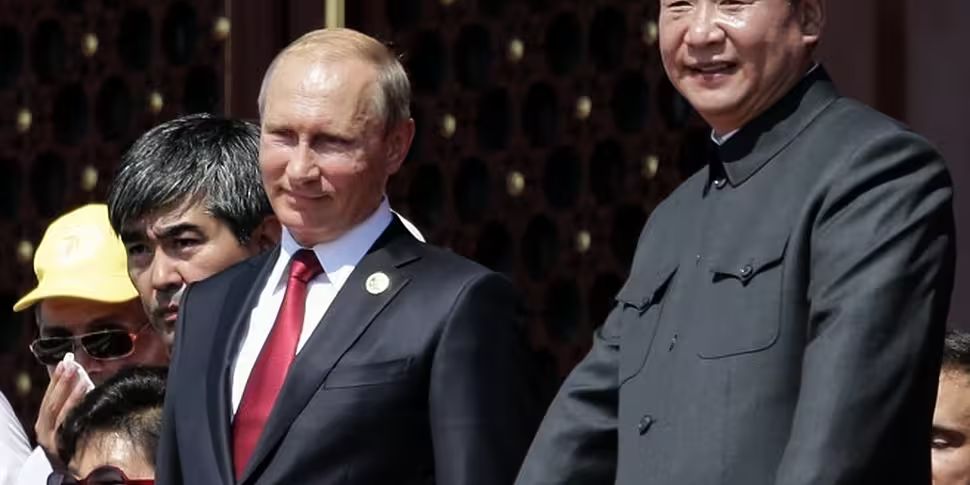On Sunday night, one of the biggest ever data leaks was released, with a number of media outlets and news agencies around the world revealing the findings of months of investigations into terabytes of data.
The original contact was made by an anonymous source to German paper Süddeutsche Zeitung (SZ) from someone inside Mossack Fonseca, a law firm based in Panama who claimed that their life was in danger and that they wanted to make public files and data from inside the company.
Realising the sheer scale of what they had received, SZ then reached out to the International Consortium of Investigative Journalists (ICIJ), and teams from 80 countries have been reviewing the 2.6 terabytes of data, or 11.5 million documents, which comprise the Panama Papers.
Who are Mossack Fonseca?
The company, a law firm that specialises in offshore companies, was founded in 1977, and according to their wesbite, they are experienced in commercial law, trust services, investor advisory and international structures. They are also world's fourth biggest provider of offshore services.
Leaked files from Panama firm Mossack Fonseca reveal how world's wealthy hide their moneyhttps://t.co/P9Bd4wyx6Q https://t.co/lP3D86UHRy
— BBC Breaking News (@BBCBreaking) 3 April 2016
They have over 40 offices around the globe in China, Latin America, Europe and the Untied States.
What are the Panama Papers?
On April 3rd 2016, a leak of data from an anonymous source revealed files which stretch back through the company's 40 year history, implicating famous figures and political leaders in offshore dealings. 12 national leaders are among 143 politicians, their families and close associates from around the world known to have been using offshore tax havens.
The information in the documents is near live, with the most recent records dating from December 2015.
Who is involved?
The papers, which are still being investigated, contain information on a number of leading political figures and public officials, including Nawaz Sharif, Pakistan's prime minister; Ayad Allawi, ex-interim prime minister and former vice-president of Iraq; Petro Poroshenko, president of Ukraine; Alaa Mubarak, son of Egypt's former president; and the prime minister of Iceland, Sigmundur Davíð Gunnlaugsson.

Image: Ukrainian President Petro Poroshenko. J. Scott Applewhite / AP/Press Association Images
According to the ICIJ, the documents also highlight the existence of "offshore companies linked to the family of China’s top leader, Xi Jinping", as well as "a pattern of covert manoeuvers by banks, companies and people tied to Russian leader [Vladimir] Putin".
Argentine president Mauricio Macri has also been implicated, through a company called Fleg Trading Ltd. which he was intermittently a director of, however a spokesperson stated that he has never been and is not a shareholder.
Among those caught up in #PanamaPapers so far... pic.twitter.com/LcRK7huhXl
— ian bremmer (@ianbremmer) 4 April 2016
According to Fusion, the son of ex-U.N. Secretary General Kofi Annan, Kojo has also "held several offshore shell companies, using one to purchase a half-million-dollar apartment in central London", but a spokesperson stated that the deal "has been fully disclosed in accordance with applicable laws".
Others named include a key member of FIFA's ethics committee, the families of at least eight current and former members of China's politburo, six members of the House of Lords and three former Conservative MPs.
Is there an Irish link?
Yes, the papers show that Mossack Fonseca had 36 clients in Ireland, and over 300 companies are also implicated, but more will be known when the ICIJ releases the full list of companies involved in early May.
What have Mossack Fonseca said?
A statement from the company said:
"For 40 years Mossack Fonseca has operated beyond reproach in our home country and in other jurisdictions where we have operations. Our firm has never been accused or charged in connection with criminal wrongdoing.
"If we detect suspicious activity or misconduct, we are quick to report it to the authorities. Similarly, when authorities approach us with evidence of possible misconduct, we always cooperate fully with them."









